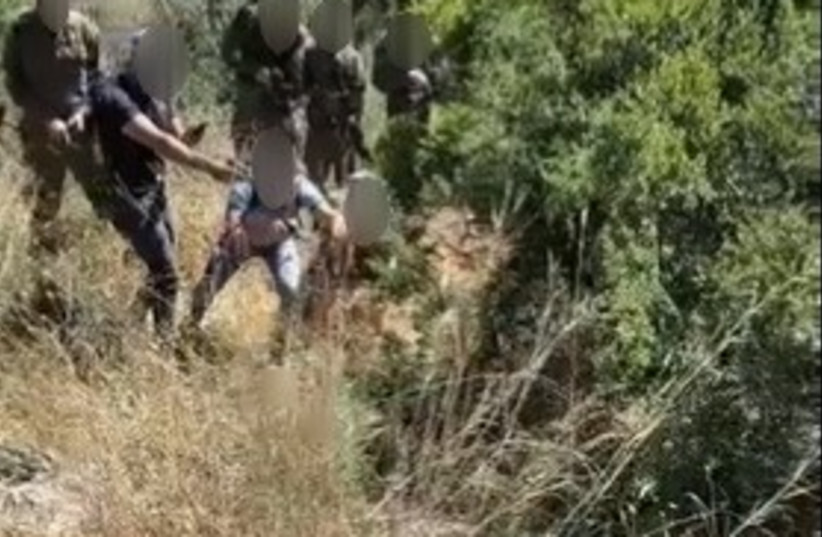The security cabinet was expected to gather as early as Sunday evening to decide on a response to the wave of terrorism and incitement by Hamas.
Targeted assassinations of Hamas leaders such as the terrorist group’s top official in the Gaza Strip, Yahya Sinwar, have been a major topic of public debate, mostly on televised weekend news panel discussions and on social media.
The security cabinet discussion was expected to be heated, with some cabinet ministers unhappy with the government’s response so far.
Among the measures being considered is to continue reducing civilian benefits to Palestinians that the government had granted in recent months, such as revoking some permits for Palestinians to enter Israel and work. Another is to rescind such benefits from people close to terrorists.
Prime Minister Naftali Bennett spoke at Sunday’s cabinet meeting about steps the government was already taking to respond to the terrorist attacks.

Police are working to stop Palestinians from illegally entering the country, which has become “a plague” and “a whole industry,” Bennett said.
As such, he instructed law enforcement to go after those who drive, house and employ Palestinians illegally by imposing prison sentences, confiscating cars and giving fines.
Defense Minister Benny Gantz apparently referred to the public discussion of targeted assassinations during his visit to the security forces’ joint command that was involved in the manhunt for the Palestinian terrorists who killed three Israelis in Elad last Thursday.
“The IDF, the Shin Bet [Israel Security Agency] and the Israel Police are working together, cooperatively in all cases, and we are examining and weighing our steps,” he said. “We will make our decisions only in the right forums.”
Communications Minister Yoaz Hendel on Sunday said: “There are those who deserve to die, in my opinion.”
Assassinations “were always legitimate and always had a price,” he said.
“Freeing Sinwar, along with many others, was a big mistake,” Hendel said, referring to the 2011 deal to free captive soldier Gilad Schalit in exchange for the release of 1,027 terrorists from prison.
Knesset Foreign Affairs and Defense Committee chairman Ram Ben Barak (Yesh Atid) said Sinwar was “dreck,” Yiddish for trash, but he would not comment directly on the possibility of Israel killing him.
“There were opportunities to do it in the past, and there will be in the future,” Ben Barak told KAN News. “We will make the decision if needed. The problems in Gaza will not end by striking one person or another… Striking the leaders of Hamas has pros and cons. When you strike one leader, another leader comes up.”
As the discussion of assassinations continued in the media, Hamas threatened to carry out suicide bombings.
“We will burn the cities in [Israel’s] center and launch missiles at Tel Aviv and Gush Dan if Israel acts on its threats,” Hamas was quoted as saying by Hezbollah’s Al Mayadeen satellite television channel on Saturday night. “The return of assassinations means the return of the explosive operations inside cities.”
However, Israel told Hamas it would not assassinate its leaders in Gaza so long as they maintain quiet, the Palestinian newspaper Al-Quds reported Sunday.
Hendel said Israel has to “make sure there is a heavy price” for Hamas terrorism and incitement, “not out of revenge but as a deterrent so that families will try to stop terrorists among them. We have to demolish the homes of terrorists’ families and come after siblings or anyone who helped them.”
The government must move quickly to repair the gaps in the West Bank security barrier, as well as combat extremism among Arab-Israelis, he said.
“There will be a point at which there is no further debate in the coalition,” Hendel said. “No one will get off easy. Politics will not stop us from taking these steps.”
